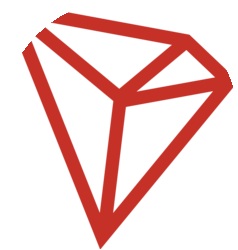Tron’s USDD 2.0 Promises 20% APY Amid Community Skepticism and Past Failures
TRX/USDT
$94,676,686.31
$0.2830 / $0.2783
Change: $0.004700 (1.69%)
-0.0007%
Shorts pay
Contents
-
Justin Sun recently unveiled the launch of USDD 2.0, a new version of Tron’s stablecoin, promising investors a lucrative 20% APY subsidized by Tron’s reserves.
-
The crypto community approaches this announcement with skepticism, recalling the transparency issues and ultimate demise of the original USDD 1.0 stablecoin.
-
As Justin Sun stated, “USDD 2.0 is about to launch with a 20% APY, fully subsidized by Tron,” but questions remain about sustainability amidst past failures.
Tron introduces USDD 2.0 with a bold 20% APY, but skepticism lingers in the crypto community after the original USDD experienced significant issues.
Tron Launches USDD 2.0 With Lofty Promises
Justin Sun, founder and former CEO of Tron, announced USDD 2.0 via social media. The new stablecoin aims to rectify the shortcomings of its predecessor, which faced significant challenges that led to its removal from major exchanges.
Back in 2022, USDD initially offered a staggering 30% APY, which had to be decreased due to unfavorable market conditions. Most recently, the Tron DAO Reserve withdrew approximately 12,000 Bitcoin from USDD’s backing without prior approval from its decentralized autonomous organization (DAO).
This controversial move significantly altered the stablecoin’s backing structure, raising considerable concerns about its stability and transparency. Only time will tell if USDD 2.0 can overcome the tarnished reputation of its earlier version.
Most importantly, the original stablecoin lost its dollar peg multiple times in the last two years, serving as a cautionary tale for the community. As a result, skepticism is high regarding the viability of this new project. Nevertheless, the company is ready to make another attempt.
“USDD 2.0 is about to launch with a 20% APY, fully subsidized by Tron. All interest will be sent in advance to a transparent address. There’s no other reason—it’s simply because we have plenty of money,” Sun elaborated, urging the public to trust their decision.
Tron’s plans for a 20% APY on a stablecoin raise significant eyebrows, given the company’s tumultuous history. Justin Sun has claimed substantial capital availability; notably, he recently invested $30 million into Trump’s World Liberty Financial. However, it is unclear how Tron can sustain these payouts without affecting its overarching profitability.
Tron’s native token, TRX, recently experienced an all-time high last month, yet its volatility raises questions about its ability to support the new stablecoin. The cryptocurrency market remains unforgiving, and TRX has shown signs of decline, which could jeopardize USDD 2.0’s long-term sustainability despite the unwavering loyalty of some investors.

Tron (TRX) Price Performance. Source: COINOTAG
The question now looms: can Tron effectively manage USDD 2.0? Potential investors face a challenging dilemma influenced by the past. Trusting the company to deliver requires that they clarify how they can support this ambitious endeavor financially, as perpetual payouts cannot continue indefinitely.
Ultimately, the market will assess whether Tron is prepared to navigate this ambitious relaunch and whether USDD 2.0 can stabilize in the volatile crypto environment.
Analysis of Market Reactions and Future Implications
The response from the crypto market will be pivotal in determining USDD 2.0’s success. The skepticism surrounding the relaunch stems from deep-rooted distrust exacerbated by previous fluctuations in USDD 1.0.
Industry analysts point to the pressing need for **transparency** in financial operations and clear communication regarding the backing and sustainability of USDD 2.0. The community’s trust is hard-won, and the understanding of yield sources is essential for potential investors.
Conclusion
As USDD 2.0 embarks on its journey, cautious optimism remains the prevailing sentiment within the crypto community. While Justin Sun’s promises may resonate with some, the lessons learned from USDD 1.0 must not be forgotten. The challenge lies in proving that **innovation** can occur alongside transparency and responsible financial management. Without tangible assurance of stability and prudence, the project may struggle to incentivize new investors.
Comments
Other Articles
Bitcoin Price Analysis: Will the Uptrend Continue?
3/2/2026
Ethereum 2.0 Update: How Will It Affect the Crypto Market?
3/1/2026
The Coming of Altcoin Season: Which Coins Will Stand Out?
2/28/2026
DeFi Protocols and Yield Farming Strategies
2/27/2026
